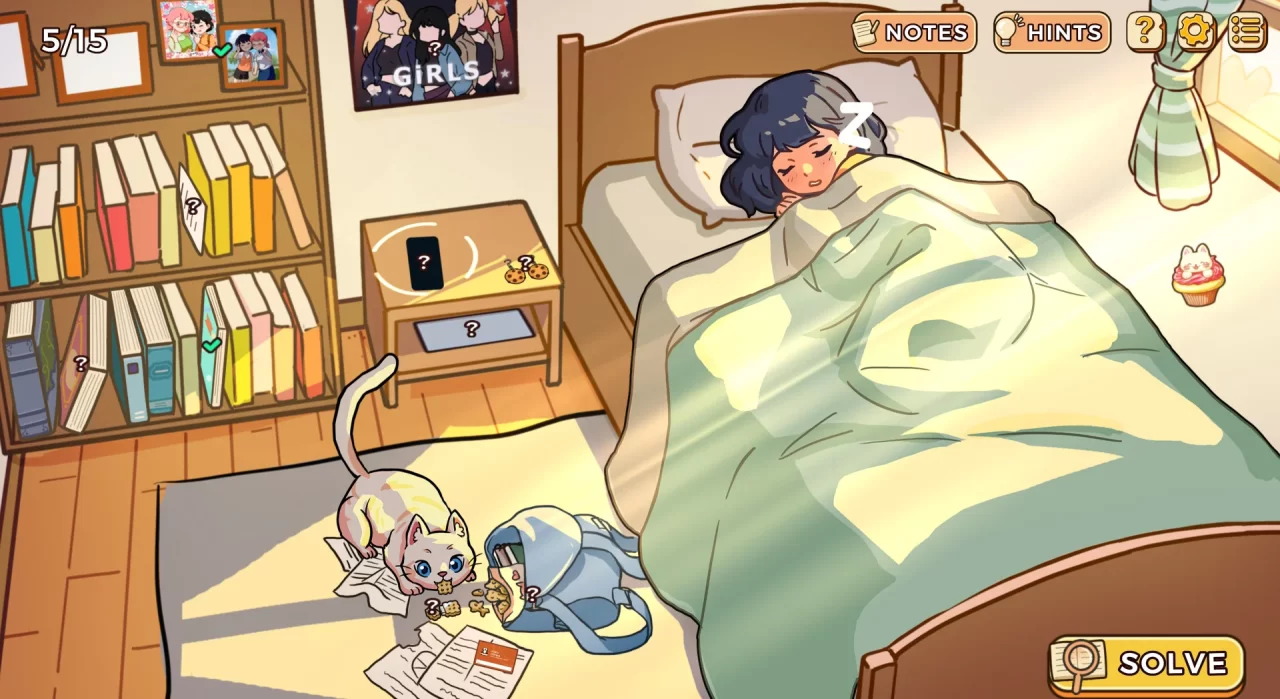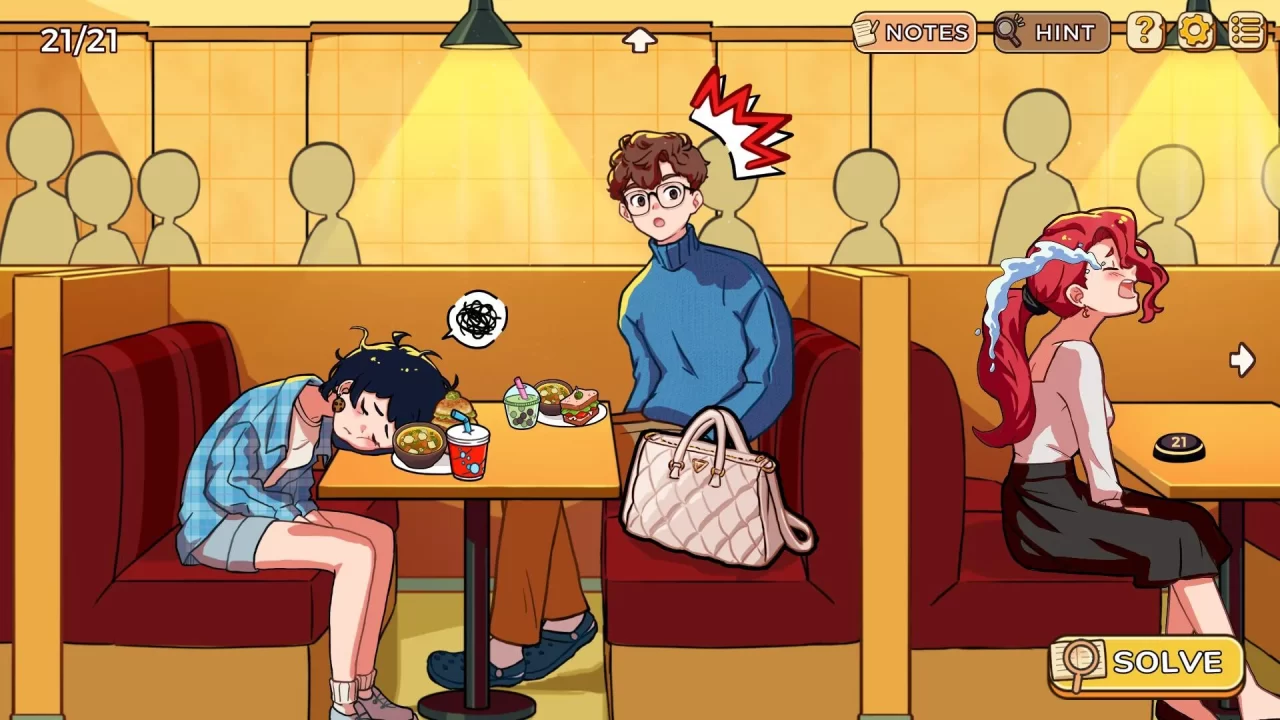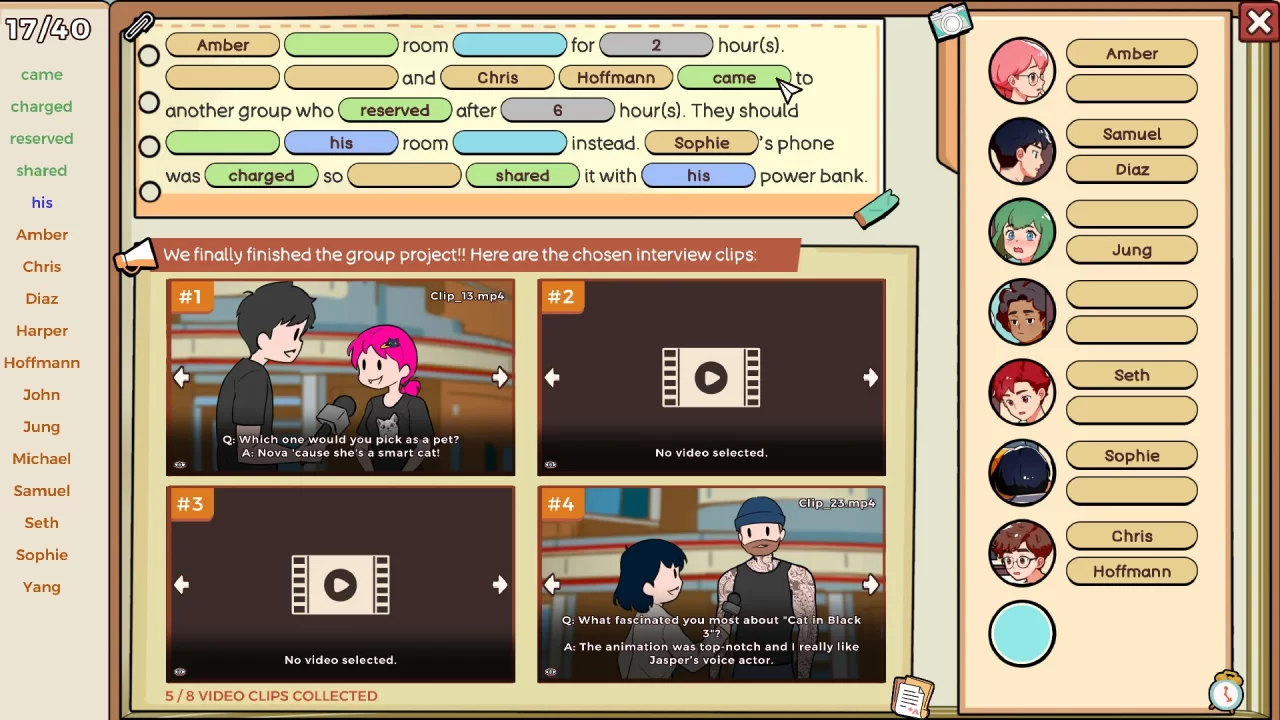One of my favorite book series growing up was E.W. Hildick’s McGurk mystery novels. Protagonist Jack McGurk and his friends were elementary school-aged detectives who solved kid-level crimes, such as kidnapped dolls or a missing baseball glove. Trifling matters that adults easily dismiss are big deals to kids, and McGurk took them seriously. Posh Cat Studio’s Little Problems: A Cozy Detective Game also acknowledges the drama in the mundane, albeit through the eyes of a first-year college student named Mary.
Little Problems follows Mary as she problem-solves an array of college kid hiccups through a series of vignettes referred to as cases. The first case shows Mary needing to recreate her portion of an overdue group presentation because her cat chewed up the USB drive it was on. A later case features Mary and her friends figuring out how to deal with the academic fallout of the botched presentation. Another one has Mary’s cat absconding from the vet’s office, and Mary needs to figure out where the critter ran off to.
I particularly liked the visual novel cutscene whose branching pathway influences Little Problems’ narrative aspects, including the final ending. Pity that was the only one. Little Problems is a brief weekend romp that left me wanting more story-influencing choices, more character development, and more extensive plotlines involving Mary and company.
Little Problems’ vignettes are generally amusing, but have choppy narrative design. The time skips between story cutscenes and interactive cases are jarring; I felt like I missed a whole series of events between one and the other. Despite Little Problems requiring the literal gathering of plot-relevant context clues, some scenarios lacked context. I wanted more backstory into the setting and characters, smoother storytelling, and deeper motivation for why Mary does what she does.
For a game predicated on a detective theme, Mary feels more like a victim of circumstance than the problem-solving detective of her peer group. Speaking of peer groups, Little Problems also feels like being a new kid awkwardly trying to say hi to an already tight-knit friend circle. It’s as if I was thrust into the middle of a series where the characters and all their dynamics are already well established.
Little Problems is a graphic adventure with similar gameplay to The Case of the Golden Idol,where searching environments for clues/clue words and using deductive reasoning solves puzzles more than inventory manipulation. There is no need to turn a pool floatie, clamp, and clothesline into a fishing apparatus (as in The Longest Journey). Keywords are just as important as visual clues and items, so it is a good idea to hunt for those as well as traditional graphic adventure hotspots. Putting the right words together to solve cases is just as challenging and satisfying as putting the right items together in more traditional graphic adventures.
Puzzles increase in difficulty as Little Problems progresses; the latter half has some doozies. Puzzles are generally fun, if occasionally repetitive, but a few fall into the common traps of requiring pinpoint pixel hunting and/or large leaps of logic. There were even a couple where I brute-forced solutions using trial and error, hoping something would work out. Cases do not require 100% completion to advance the story, but 100%ing cases and discovering secrets unlocks additional goodies and achievements.
Little Problems utilizes basic point-and-click controls: point and click on a hotspot to find clues. Then, point and click on parts of those clues to uncover more information. Once all the information is in the inventory, the puzzle case can be solved. Control is natural and intuitive, except for needing to hold down the right mouse button and drag the mouse to scroll up and down in the main menu. I instinctively kept going for the mouse wheel until I saw the icon reminding me to use the right mouse button to drag. I also would have liked an option to speed up text during cutscenes.
Bright, whimsical music complements the bright, whimsical visuals. The cutscenes and puzzle screens feel like a manga with painterly coloring. Character designs are appealing, but the animals (like Mary’s golden retriever, Ben) steal the show. Pity I could not pet Ben and all the other dogs and cats. The music adds atmosphere to each scene, and the compositions are nice to listen to without being obtrusive. In a game like Little Problems, I must be able to hear myself think, and the music never gets in the way of that.
Slice-of-life games like Little Problems remind us that life’s little mysteries are story-worthy. I liked the brief snapshots of Little Problems’ setting and the characters in it. I just wish Little Problems were a longer game with a more cohesive storyline, a smoother narrative, deeper character development, less repetitive puzzles, and a stronger detective theme. McGurk, this is not. Hopefully, DLC or a sequel will expand on what Little Problems started.





